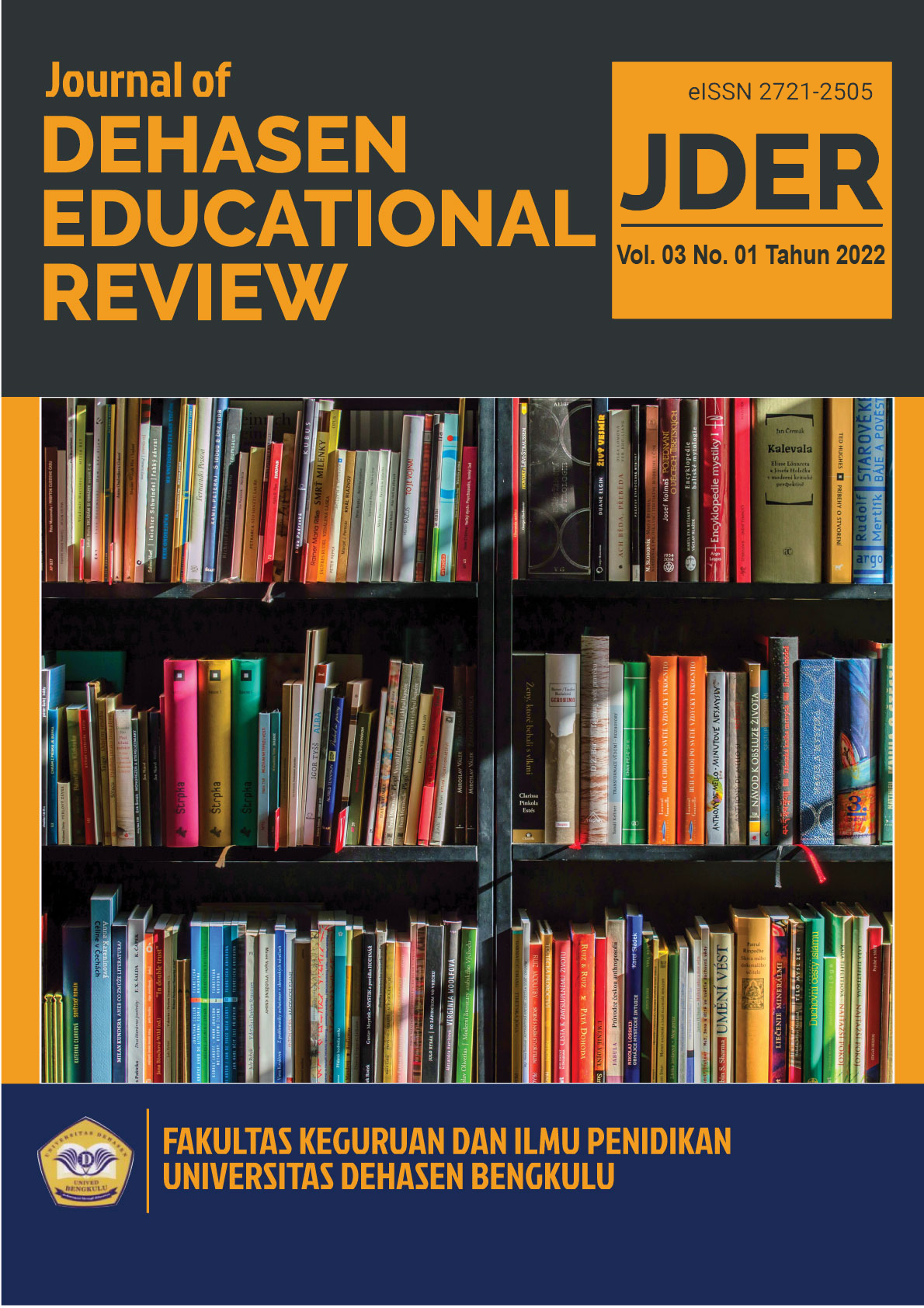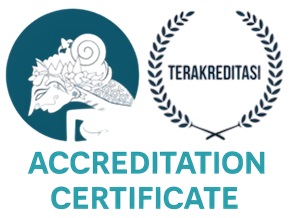The Importance of Digital Literacy in Improving Students' Skills in English
Abstract
Pandemic Indonesia believes that Indonesians still experience "technology stuttering", especially in the education sector, where technology is scarce due to the availability of technological equipment. The phenomenon of pandemic situations makes online learning difficult for teachers and students because they do not have enough skills to implement online learning. This affects the quality of the learning process and the results of students in school, especially in English subjects. The purpose of this study is to observe the digital literacy skills of high school students in Bengkulu. This study was based on descriptive qualitative semi-structured interviews to investigate 21 students. The use of digital literacy in learning English was used in those interviews, and the results of the interviews are discussed in the journal. Digital literacy is a student's ability to search for information on the Internet. In addition, digital literacy allows students to choose information carefully. This study shows the student's ability to find appropriate information in their English material. In addition, this study explains the importance of digital literacy, especially for ESL students, and how to use English digital literacy in the post-pandemic situation in Indonesia.
Downloads
References
Eryansyah, Erlina, Fiftinova, & Nurweni, A. (2019). EFL Students' Needs of Digital Literacy to Meet the Demands of 21stCentury Skills. Indonesian Research Journal in Education, 3(2), 442–460. https://online-journal.unja.ac.id/irje/article/view/8297
Hariati, P. (2021). Implementation of Digital Literacy toward Pandemic Situation. Budapest International Research and Critics Institute (BIRCI-Journal): Humanities and Social Sciences, 4(2), 2920–2926. https://doi.org/10.33258/birci.v4i2.2001
Harmoko, D. D. (2021). Digital Literacy As A Solution To Improve The Quality Of Indonesia's Human Resources. Research and Development Journal of Education, 7(2), 413. https://doi.org/10.30998/rdje.v7i2.10569
Nascimbeni, F., & Vosloo, S. (2019). Digital Literacy for Children: Exploring Definitions and Frameworks. Unesco, 01, 1–49.
Shopova, T. (2014). Digital literacy of students and its improvement at the university. Journal on Efficiency and Responsibility in Education and Science, 7(2), 26–32. https://doi.org/10.7160/eriesj.2014.070201
UNICEF. (2020). Strengthening Digital Learning across Indonesia: A Study Brief. Unicef, 1–
14. https://www.unicef.org/indonesia/media/10531/file/Strengthening Digital Learning across Indonesia: A Study Brief.pdf
van Laar, E., van Deursen, A. J. A. M., van Dijk, J. A. G. M., & de Haan, J. (2020).
Measuring the levels of 21st-century digital skills among professionals working within the creative industries: A performance-based approach. Poetics, 81(December 2019), 101434. https://doi.org/10.1016/j.poetic.2020.101434
Copyright (c) 2023 Dhanu Ario Putra, Merry Rullyanti

This work is licensed under a Creative Commons Attribution-ShareAlike 4.0 International License.

This work is licensed under a Creative Commons Attribution-ShareAlike 4.0 International License.









